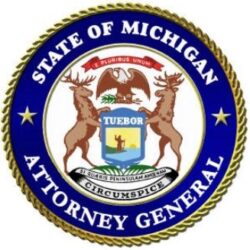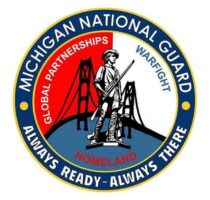(WXYZ) — The Michigan Department of Transportation has an activity for kids to do while at home during the COVID-19 outbreak.
The department said kids can learn about engineering by designing, building and testing a bridge made from spaghetti.
All you’ll need is uncooked spaghetti, masking tape, empty soup cans or coffee cans and strips of cardboard.
Procedures: Bridges are a very important component of our transportation system. Without the use of bridges to traverse environmental elements such as rivers and gorges, it would take much longer and be more expensive to get products and people to their destinations.
Elementary bridge designing using materials such as spaghetti provides students with a method of investigating engineering techniques and allows for practicing scientific testing procedures.
Engineering Guidelines:
- All completed bridge supports must be the same distance above the floor or tabletop. A distance of 30 centimeters or 1 foot works well.
- Each group must use the same (or less) amount of uncooked spaghetti. The amount of spaghetti used is dependent upon the size of the can used. For soup cans, use 30-40 noodles; for coffee cans use 75-100 noodles.
- The base of the support structure must be no wider than the can being used.
- The can must be positioned with the opening facing up. This allows for the addition of weights to test the strength of the support.
- The students can break or cut the spaghetti to any length they deem necessary.
- The spaghetti should be taped only at the top or bottom. In other words, they must not use tape to wrap the entire length of the noodles or bundles of noodles.
Making the Support Structure:
- Have the students become familiar with the engineering guidelines and the materials being used in the lesson.
- Ask the students to brainstorm ideas for their design and to make drawings of possible support systems.
- Suggest they consider geometric shapes (triangles, rectangles, etc.) that could be used.
- Provide an adequate time limit for experimentation and construction. This consideration is dependent upon the ability level of the class.
- Ask them to record the number of noodles that they use.
- When each group has completed the task, have them investigate the maximum length of cardboard or poster board that can be balanced upon their support.
- Have them record the metric length. Verify each group’s results and record their findings on the chalkboard.
- Next, have each group use weights placed inside the can to test the strength of their support. Suggest that they begin with the lightest of weight then add weight incrementally.
- Have them record the progression of weights that are added.
- Have the students stop adding weight when the structure begins to wobble.
- Verify each group’s results and record their findings on the chalkboard. If appropriate, give a prize to the members of the teams with the “best” results.
- Ask the groups to re-place their cardboard roads upon the support structure. Does the structure still support the “road”? Can more weight be added when the road is placed on the bridge support?







![items.[0].image.alt](https://ewscripps.brightspotcdn.com/dims4/default/4ecf594/2147483647/strip/true/crop/400x225+0+60/resize/1280x720!/quality/90/?url=https%3A%2F%2Fewscripps.brightspotcdn.com%2F97%2Fd1%2F0e8f6700466d89883b1fd78180c6%2Fmdot.jpg)